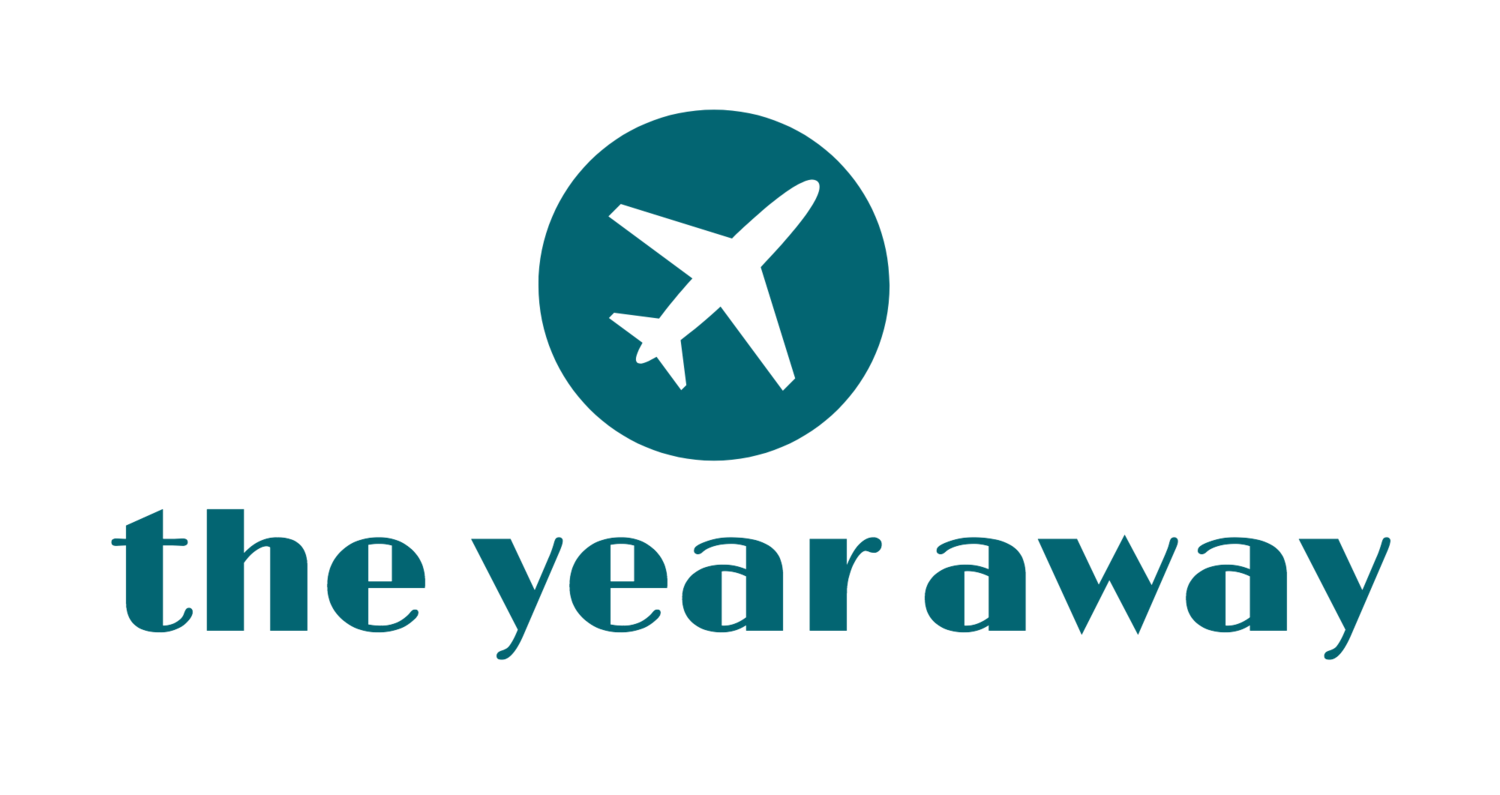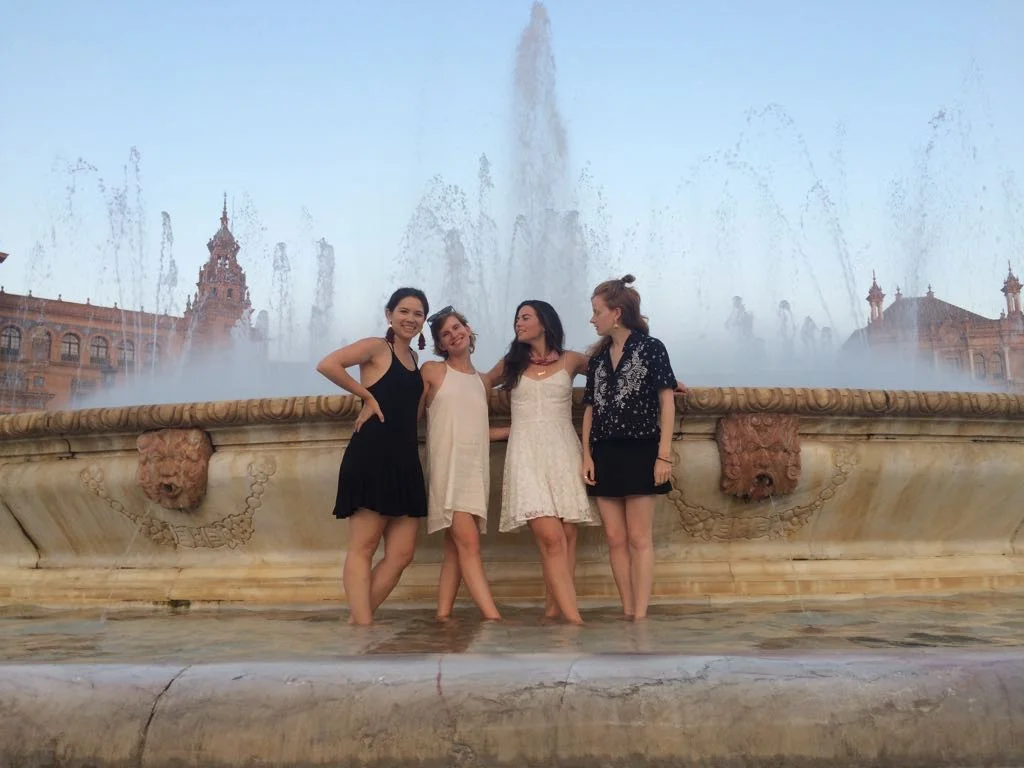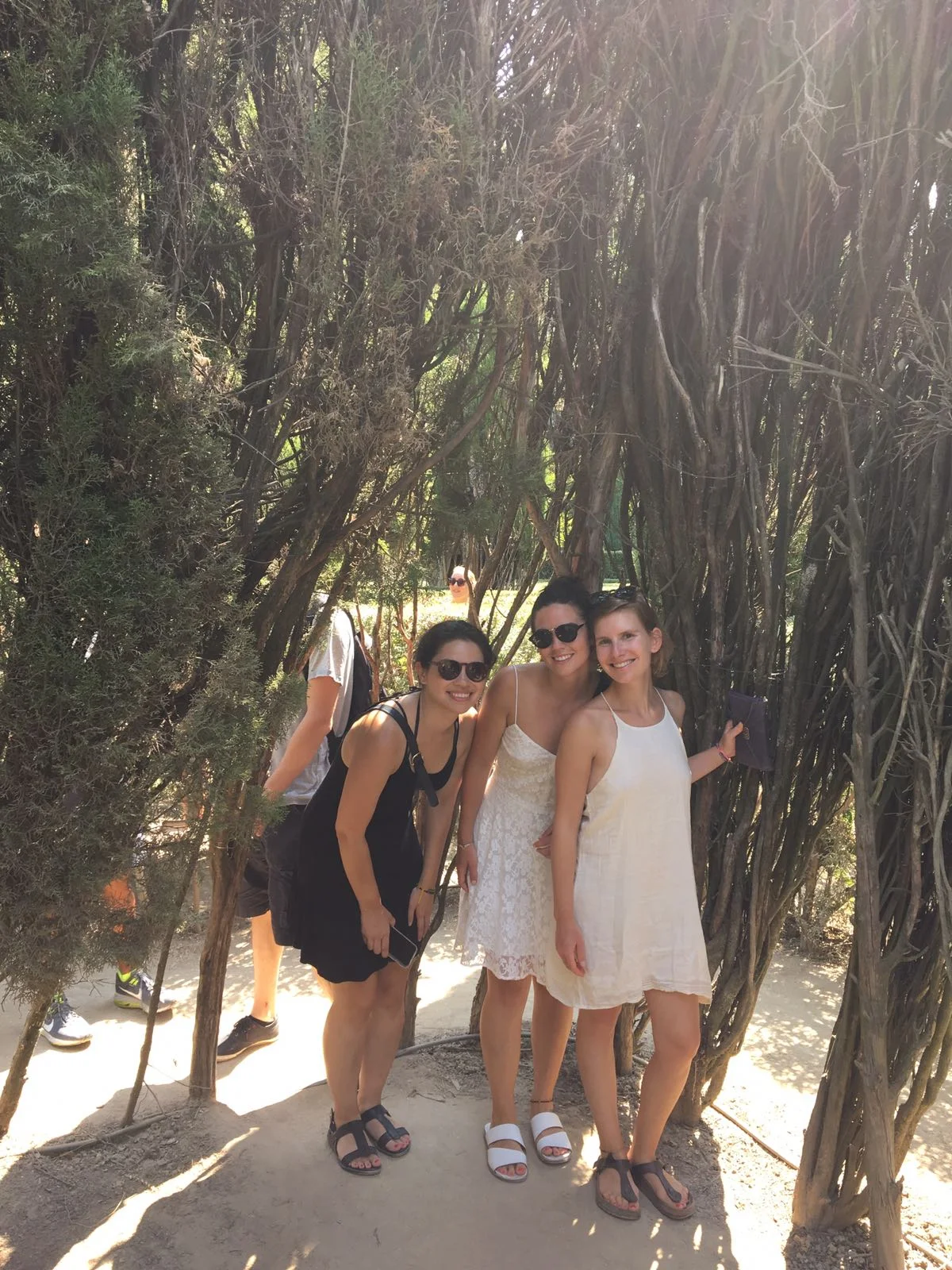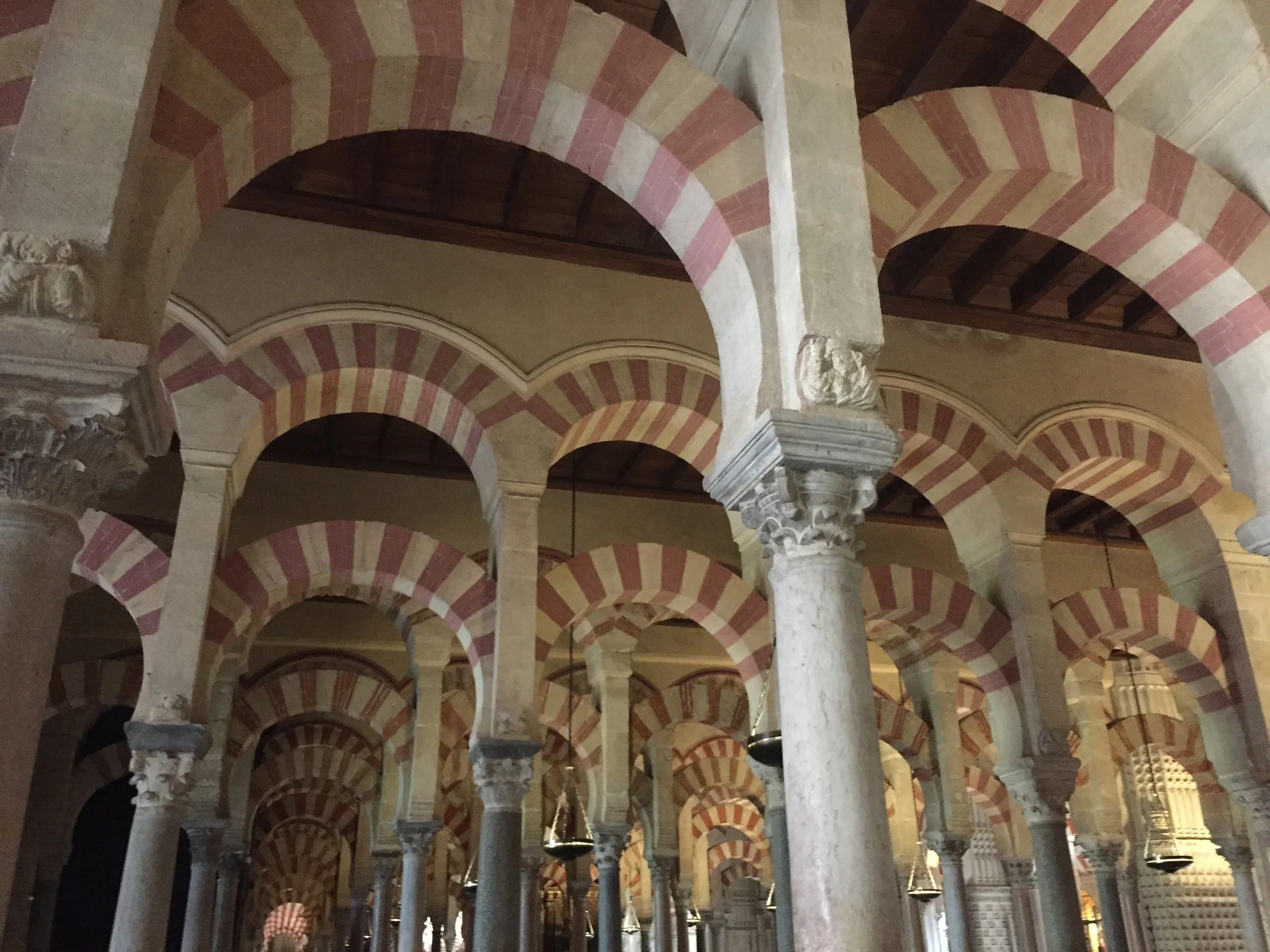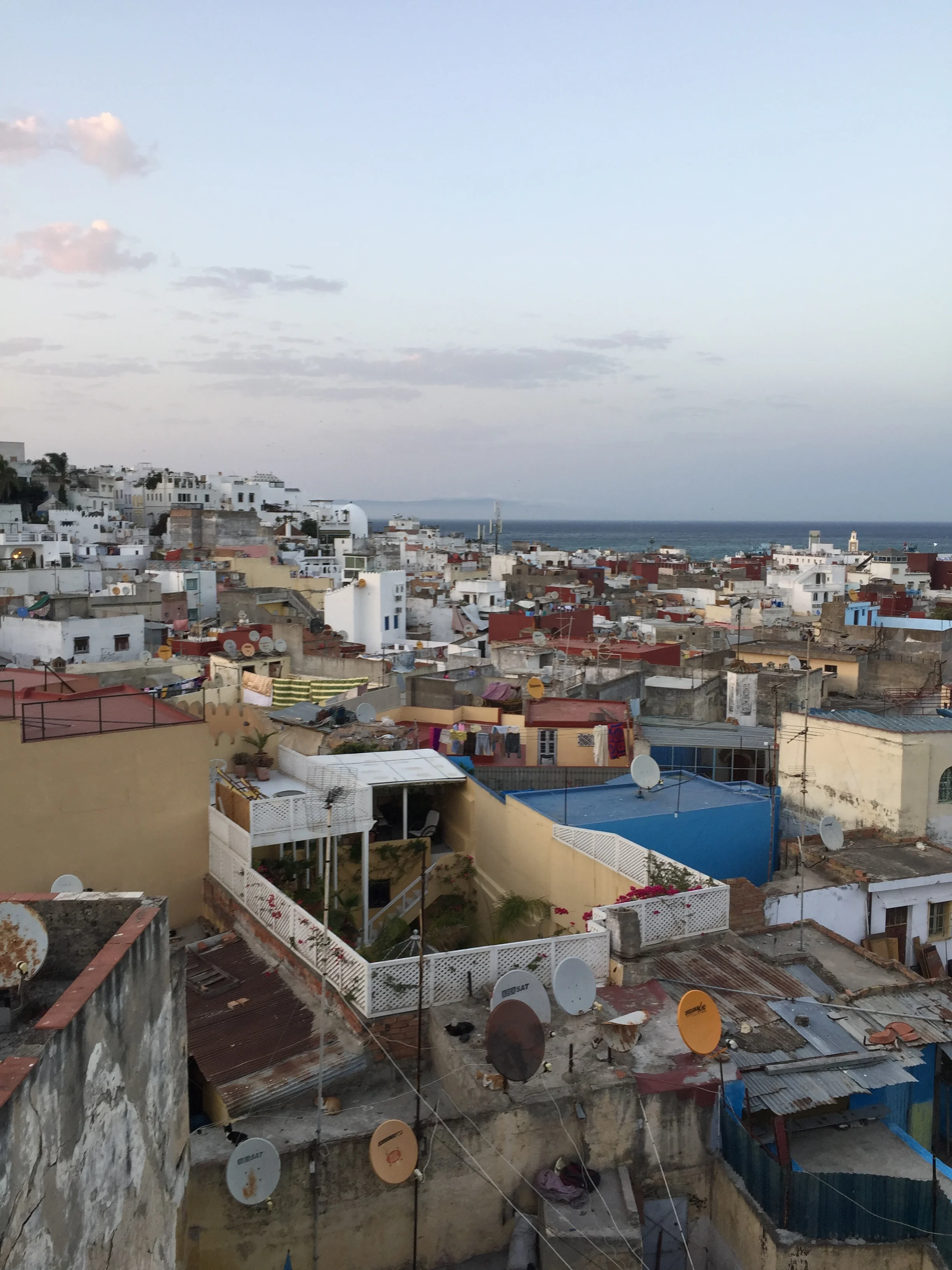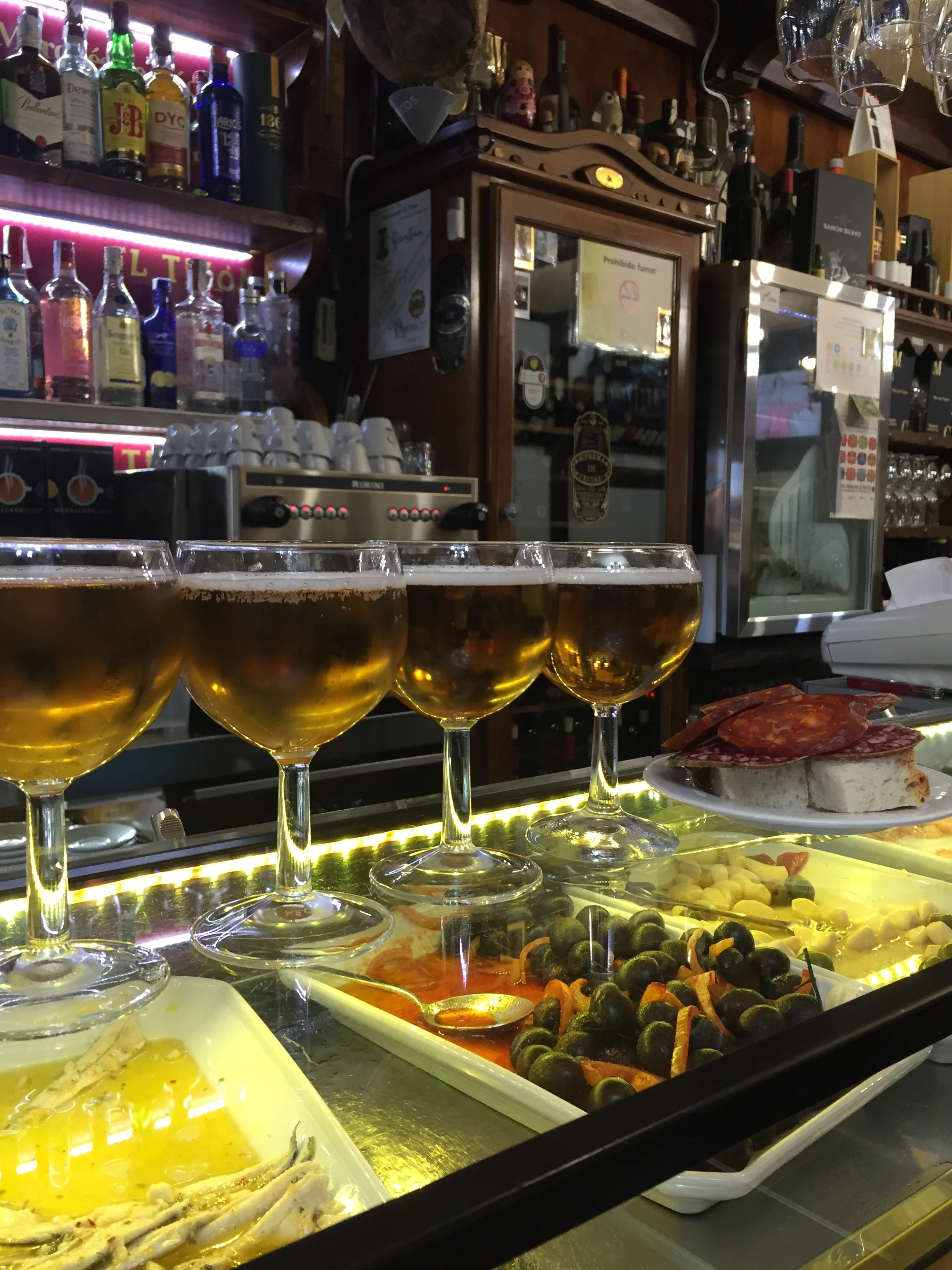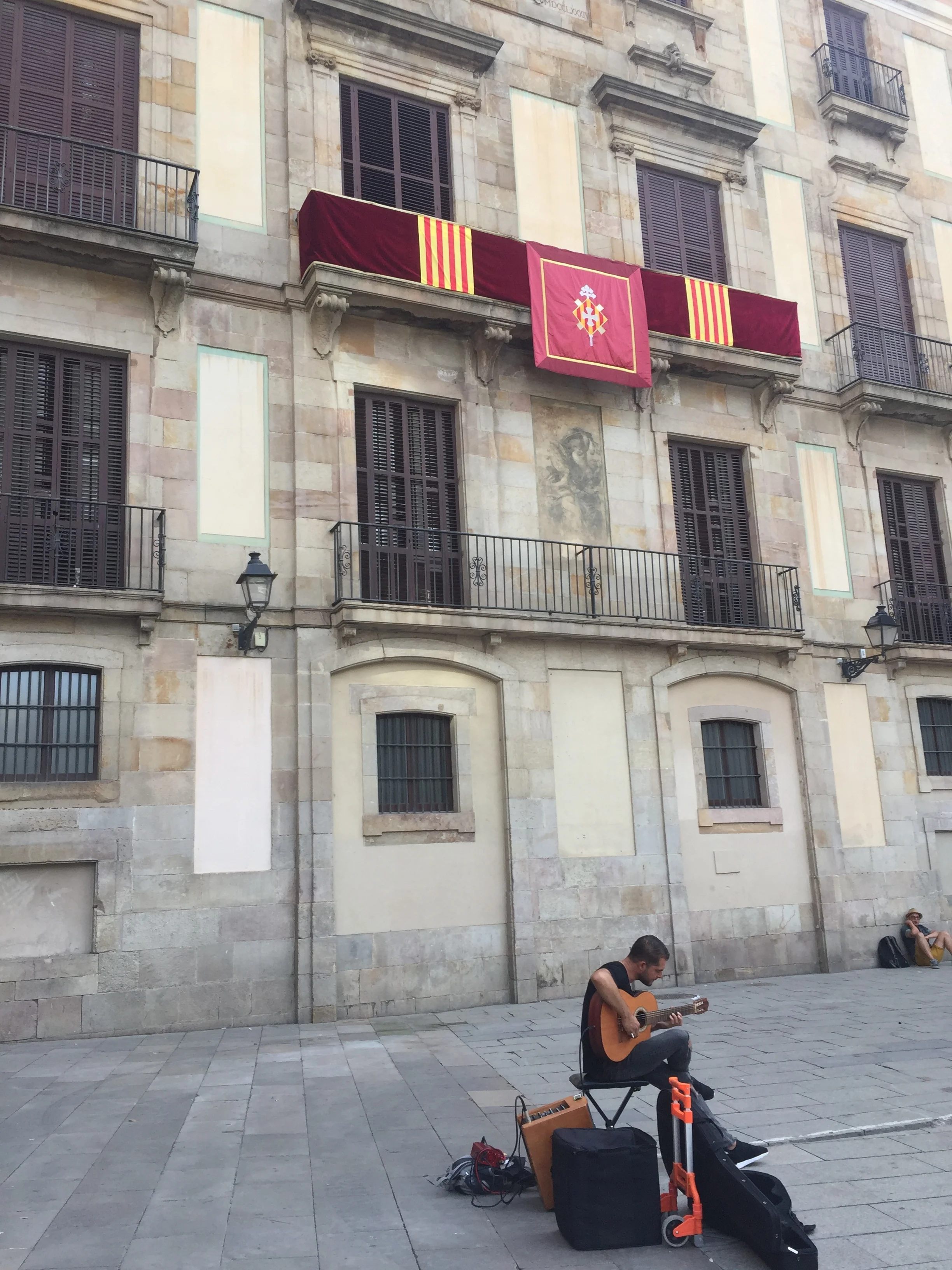Seville: A Glamorous Reunion
Seville was the start of Will and my three week love affair with Spain.
It was also a continuation of traveling with friends. But this time, with three of my very closest childhood friends: Lucy, Johanna, and Caitlin.
The four of us backpacked together throughout Asia in 2011, but now, Lucy lives in London and Caitlin lives in Paris. Plans had been in the works to meet up at the end of August this year for a while.
Spain felt like neutral ground, and Seville was new to us all.
It was a beautiful mix of historic grand palaces and Cathedrals, with maintaining a lively tapas scene in the evenings.
Plenty to do and see. And ample cafes to cozy up to have long overdue catch up sessions.
The city of Seville feels like the soul of Andalucía. It embodies Southern Spain’s allure: sweet orange blossoms, narrow medieval roads, colorful Flamenco, and steamy summer nights.
It’s a wonderful, if not glorified, introduction to Spanish culture. There’s a sense of living history when walking through the unevenly paved plazas.
Any preconceived vision that you held of the 19th-century depiction of Spanish art and culture is represented: soulful opera singers and romantic troubadours. Some more enthused by the troubadours than others.
Although this depiction can feel stereotypical and inauthentic, much of the old culture remains. In Seville, you just have to search a bit deeper, past the tourist traps, to find the true spirit of Spain.
Seville was an ideal city for us to meet up. And as predicted, it was an absolute blast. Our reunion started with a couple bottles of cava in our airbnb, near the town center.
We went out late for tapas that evening, Caitlin impressing us all with her Spanish. The following day, we went to Levies Cafe for brunch. There, we met two guys from California. From that point on, along with Johanna’s friend from Belgium, our crew was solidified.
After brunch, we ventured to the Catedral de Sevilla. The UNESCO site is also one of the world’s largest Gothic cathedral.
Built between 1434 and 1517, it is truly awe-inspiring.
Notable points of interest include the tomb of Christopher Columbus and the Capilla Mayor with a gold altarpiece.
Personally, I found the Giralda most impressive. After climbing 35 ramps, constructed so that guards could access via horseback, the top boasts stunning views of the city.
Typical of Seville, it felt oppressively hot in the afternoon. My friend Amy, and former Treasure Island roommate, now lives in Madrid and provided us with some recommendations. We followed her list quite closely. We cooled off at Taberna Alvaro Peregil for a beer. We were told they’re renowned for their orange wine, which we sampled as well. After, we went to Cafe-Bar las Teresas.
It became a place we congregated more often than not due to it’s cozy ambiance and lively wrap-around bar.
Over the course of the proceeding days, we tried several types of jamon sliced to order, and the dry sherry, which Amy recommended.
One evening we ventured to the other side of the river to the Triana neighborhood, known for ceramics during the day and local tapas in the evening.
We had such a lovely meal, sharing an array of plates.
And found a festive bar after, with live music, for a few drinks and rounds of cards.
We ended up staying out too late, but it was a super memorable evening.
The following day we took it slow, stopping for churros at a traditional cafe.
We wandered around, coming across the Metropol Parasol. Located in the Plaza de la Encarnación in the Old Quarter, it was completed in 2011 by a German architect. There are claims that it’s the largest wooden structure in the world.
That evening, we stopped by a local flamenco bar. Having been to a more formal show in Barcelona year back, I much preferred this casual setting.
On our last full day, we explored the Alcázar of Seville.
The royal palace was built by Castilian Christians on the site of a Muslim residential fortress, which was devastated after the Christian takeover of Seville.
The palace is considered one of the most beautiful examples of Mudéjar architecture, which was a popular style in the 12th century on the Iberian peninsula.
The upper levels of the Alcázar are still used by the royal family as their residence.
In fact, the UNESCO site is the oldest royal palace still in use in Europe.
After exploring the palace, we spent hours in the adjoining gardens.
At the time it was constructed, all palaces were accompanied by gardens and orchards.
The Alcázar gardens have experienced a multitude of changes over the years. Initially, an Italian Mannerist style was introduced in the 16th century, which included a gallery to appreciate the gardens.
The beauty of the architecture and spirit of Seville cannot be understated. It embodies so much of Spain.
However, it was truly the company, our tight knit crew, that will be my takeaway.
Wandering down the narrow lanes. It’s not always easy to travel in a group, but this happened to be a really great one.
Catching up with my best friends from home warmed my heart. It was with them that I was first introduced to the backpacking subculture. An entire world of travel I had never previously been exposed to.
Singapore, 2011
To travel again with them, if only for a few days, was beyond meaningful.
On our last night in Seville we went to the Parque de María Luisa. It’s the city’s main green space, but we spent most of the time cooling off in the the fountain.
We said our goodbyes early the following morning.
Cities will always take on different meaning for me. A site, a taste, a feeling. For Seville, it will forever be our reunion.

